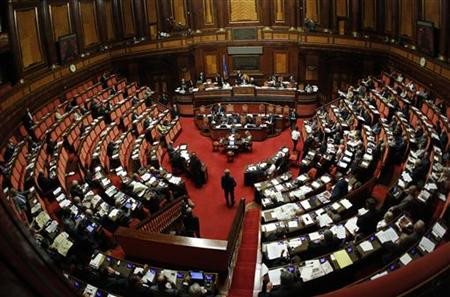Eurozone Crisis: Italian Senate Approves Austerity Law

The Italian Senate has approved the austerity law, a package of measures designed to avoid a Eurozone breakdown. The law should get final approval by the lower house at the weekend, leaving the way for Prime Minister Silvio Berlusconi to step down. The senate voted by 156 to 12 in favour of the austerity package.
The law foresees around 60 billion of euros in savings from a mixture of spending cuts and tax rises, with the aim of balancing the budget by 2014. Measures include a rise in VAT from 20 per cent to 21 per cent; a freeze on public-sector wages until 2014; a gradual increase in retirement age for women in the private sector from 60 in 2014 to 65 in 2026; stricter rules on tax evasion, including a limit of 2,500 euros on cash transactions and a special tax on the energy sector.
Economist and former European Commissioner Mario Monti is considered the favourite to succeed the 75-year-old media tycoon. Monti has just been appointed by President Giorgio Napolitano a senator-for-life, meaning that he will eligible to take part in Friday's vote.
If the lower house completes the vote on Saturday, Napolitano could formally ask Monti to form a government of technocrats.
But Berlusconi's party is still deeply divided between those in favour of elections, and those open to a Monti '"national emergency government".
After a four-hour meeting between Berlusconi and his ministers, Defence Minister Ignazio La Russa said "a decision has not been taken due to uncertainty over whether Italy needs a cross-party or technical government or, vice versa, a government sanctified by vote".
"Monti will need to have the backing of most of Berlusconi's People of Freedom party before any technical government is formed," Robert D'Alimonte, a professor of politics at LUISS University, told The Guardian.
Berlusconi's Northern League coalition ally rejected the idea of a government of technocrats. Also centre-left parties such as Antonio Di Pietro's Italy of Values said they would not sign away authority to a Monti government.
© Copyright IBTimes 2025. All rights reserved.





















